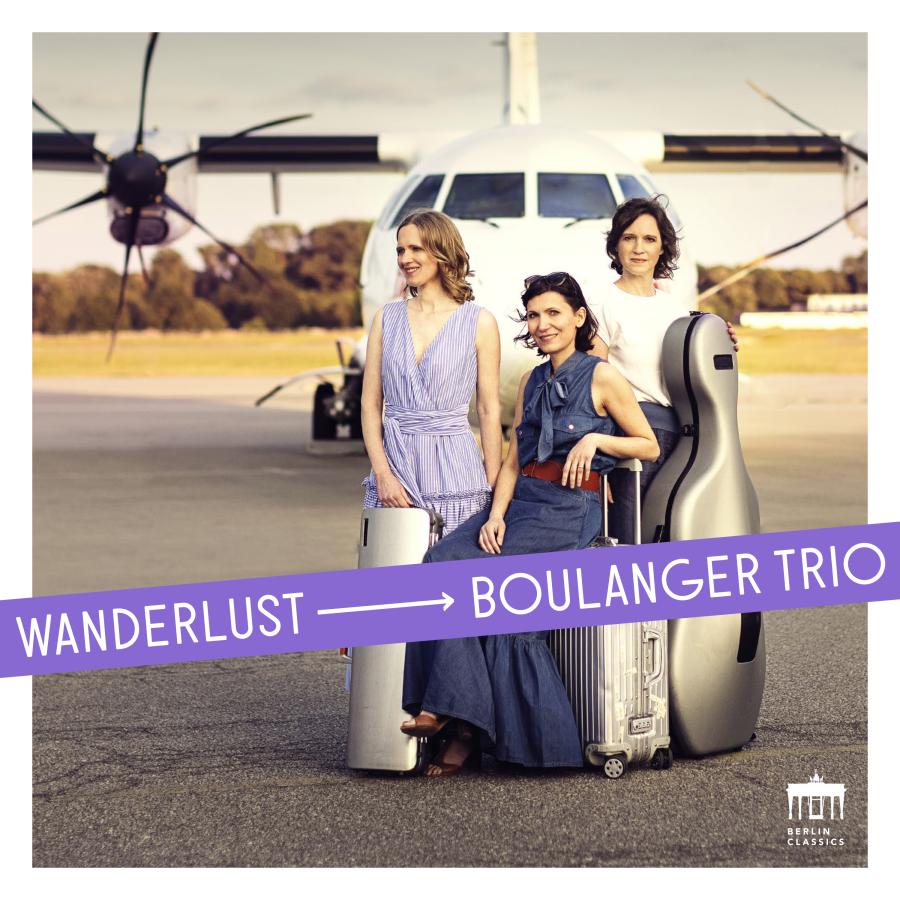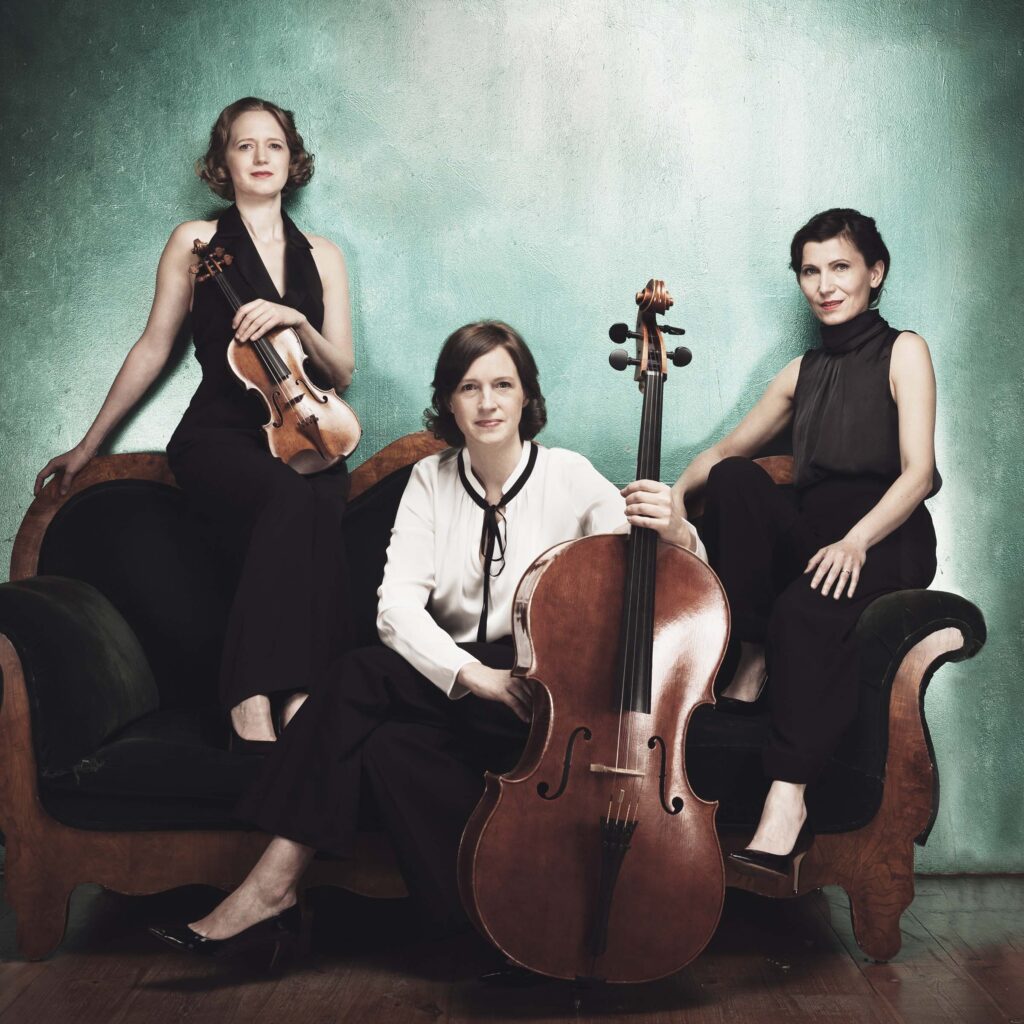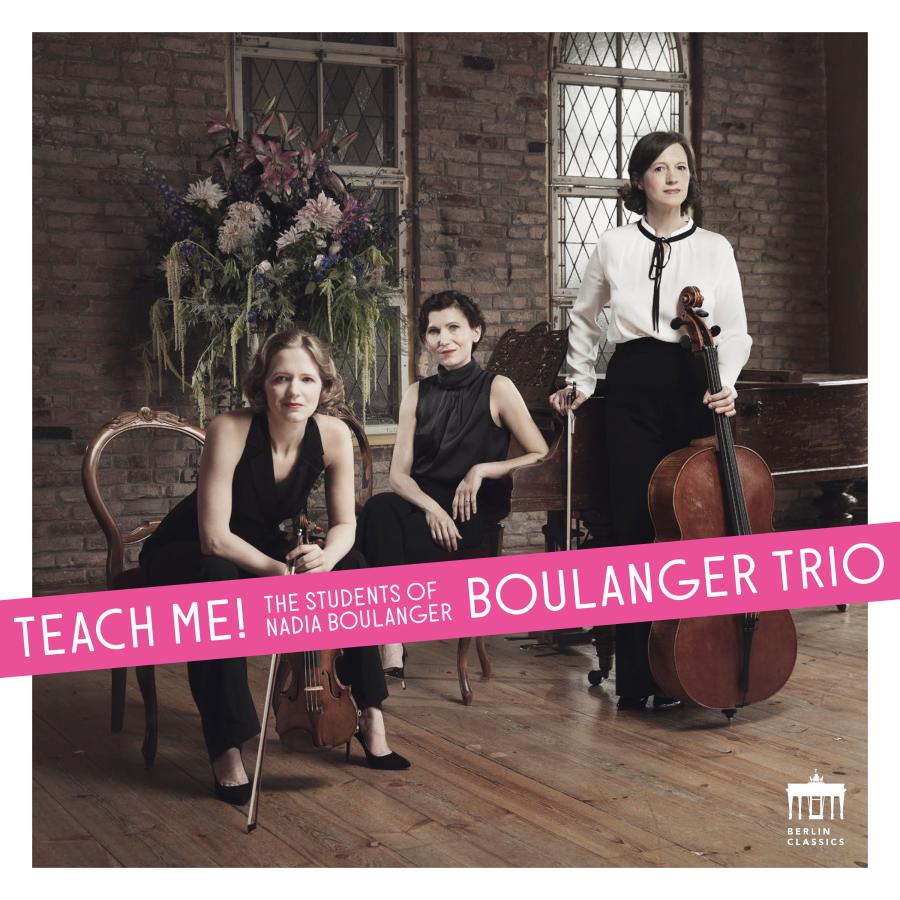When they recorded “Teach me!”, their debut with Berlin Classics, the seasoned musicians of the Boulanger Trio put together a concept album that was both musically thrilling and an exceptionally clever piece of programming. On “Wanderlust”, their new album, they explore worlds of Romantic sensitivity, entice listeners into a galaxy of soundscapes and grasp the musical wanderer’s staff.
Soaring aloft like a tender, distant violin melody from the far North, this arrangement of Grieg’s “To Spring” was specially prepared for the Boulanger Trio. In stark contrast to the coming of Norwegian spring, Dvořák’s Dumky piano trio enraptures us with its Slavic sound world of joy and sorrow. Manuel de Falla lightly sketches a portrait of Spain in his Canciones populares españolas, from which the Trio selected five short songs for arrangement. Three of Brahms’s Hungarian Dances take the Trio into the realm of Eastern sounds, before Grieg’s Notturno returns us to the North. Frank Martin’s Trio sur des mélodies populaires irlandaises brings the musical wanderer to the far West and the rich green of Irish meadows.
Many of the works that are heard here, selected by the Boulanger Trio for its exploration of the urge to roam that is Wanderlust, are performed in arrangements specially commissioned for this recording. Each work is aware of the many sounds and moods that a piano trio is uniquely able to render and knows how to interpret that variety to the full. The subject of “wanderlust” that links the selected compositions is imaginatively chosen. The practice of roaming from one place to the next is a true invention of the Romantic era: individual travel on foot over hill and dale, not in order to arrive at a destination but for the sake of travelling itself and for the experiences (of Nature) that are derived from it. The nineteenth century had begun with a fashion spreading from England in ever greater ripples that were to change the world by changing human perception of that world: ever more wanderers set out to explore their homeland because they were attracted by the landscape itself – a bourgeois variant, limited in radius and in extent by its inherent longing for adventure, of what was to embody a venturing out into the world as Wanderlust. This wish was soon directed towards ever bolder, ever more distant goals, not yet cities but landscapes – the Rhine valley, Switzerland, the Alps, Italy, France, eastern Europe, the Nordic lands. The continent had great riches to offer, as it proved. All that wealth had to be discovered, roamed through to the full.
The early-21st-century return to the source of European wanderlust, in this case to its musical roots, is also a reaction against later, decadent, exploitative outgrowths of a culture that had begun as a probing, testing, seeking, always reverent inclination. By picking up just where the conquest of landscape in the spirit of music actually took place, positioning itself against this background in its interpretations as one of today’s contemporary, topical, committed ensembles, the musicians of the Boulanger Trio give us the opportunity to discover and reinvent a musical tradition that sometimes risks falling out of focus behind the fast-action superficial closeness of a popularity that may here and there be based on misunderstandings.
Wanderlust Boulanger Trio

Artist

Composer





Further information
Genre
Klassik
Romantic
Publication date
04.03.2022
When they recorded “Teach me!”, their debut with Berlin Classics, the seasoned musicians of the Boulanger Trio put together a concept album that was both musically thrilling and an exceptionally clever piece of programming. On “Wanderlust”, their new album, they explore worlds of Romantic sensitivity, entice listeners into a galaxy of soundscapes and grasp the musical wanderer’s staff.
Soaring aloft like a tender, distant violin melody from the far North, this arrangement of Grieg’s “To Spring" was specially prepared for the Boulanger Trio. In stark contrast to the coming of Norwegian spring, Dvořák’s Dumky piano trio enraptures us with its Slavic sound world of joy and sorrow. Manuel de Falla lightly sketches a portrait of Spain in his Canciones populares españolas, from which the Trio selected five short songs for arrangement. Three of Brahms’s Hungarian Dances take the Trio into the realm of Eastern sounds, before Grieg’s Notturno returns us to the North. Frank Martin’s Trio sur des mélodies populaires irlandaises brings the musical wanderer to the far West and the rich green of Irish meadows.
Many of the works that are heard here, selected by the Boulanger Trio for its exploration of the urge to roam that is Wanderlust, are performed in arrangements specially commissioned for this recording. Each work is aware of the many sounds and moods that a piano trio is uniquely able to render and knows how to interpret that variety to the full. The subject of “wanderlust” that links the selected compositions is imaginatively chosen. The practice of roaming from one place to the next is a true invention of the Romantic era: individual travel on foot over hill and dale, not in order to arrive at a destination but for the sake of travelling itself and for the experiences (of Nature) that are derived from it. The nineteenth century had begun with a fashion spreading from England in ever greater ripples that were to change the world by changing human perception of that world: ever more wanderers set out to explore their homeland because they were attracted by the landscape itself – a bourgeois variant, limited in radius and in extent by its inherent longing for adventure, of what was to embody a venturing out into the world as Wanderlust. This wish was soon directed towards ever bolder, ever more distant goals, not yet cities but landscapes – the Rhine valley, Switzerland, the Alps, Italy, France, eastern Europe, the Nordic lands. The continent had great riches to offer, as it proved. All that wealth had to be discovered, roamed through to the full.
The early-21st-century return to the source of European wanderlust, in this case to its musical roots, is also a reaction against later, decadent, exploitative outgrowths of a culture that had begun as a probing, testing, seeking, always reverent inclination. By picking up just where the conquest of landscape in the spirit of music actually took place, positioning itself against this background in its interpretations as one of today’s contemporary, topical, committed ensembles, the musicians of the Boulanger Trio give us the opportunity to discover and reinvent a musical tradition that sometimes risks falling out of focus behind the fast-action superficial closeness of a popularity that may here and there be based on misunderstandings.
Tracklist - These are the tracks you will hear on the album
Wanderlust
Boulanger Trio
1
To Spring
2
I. Lento maestoso — Allegro quasi doppio movement
3
II. Poco Adagio — Vivace non troppo
4
III. Andante — Vivace non troppo
5
IV. Andante moderato — Allegretto scherzando
6
V. Allegro — Meno mosso
7
Vi. Lento maestoso — Vivace
8
No. 1, el Paño Moruno
9
No. 3, Asturiana
10
No. 4, Jota
11
No. 5, Nana
12
No. 7, Polo
13
No. 4, Poco sostenuto
14
No. 5, Allegro
15
No. 17, Andantino
16
Notturno
17
I. Allegro moderato
18
II. Adagio
19
III. Gigue. Allegro








